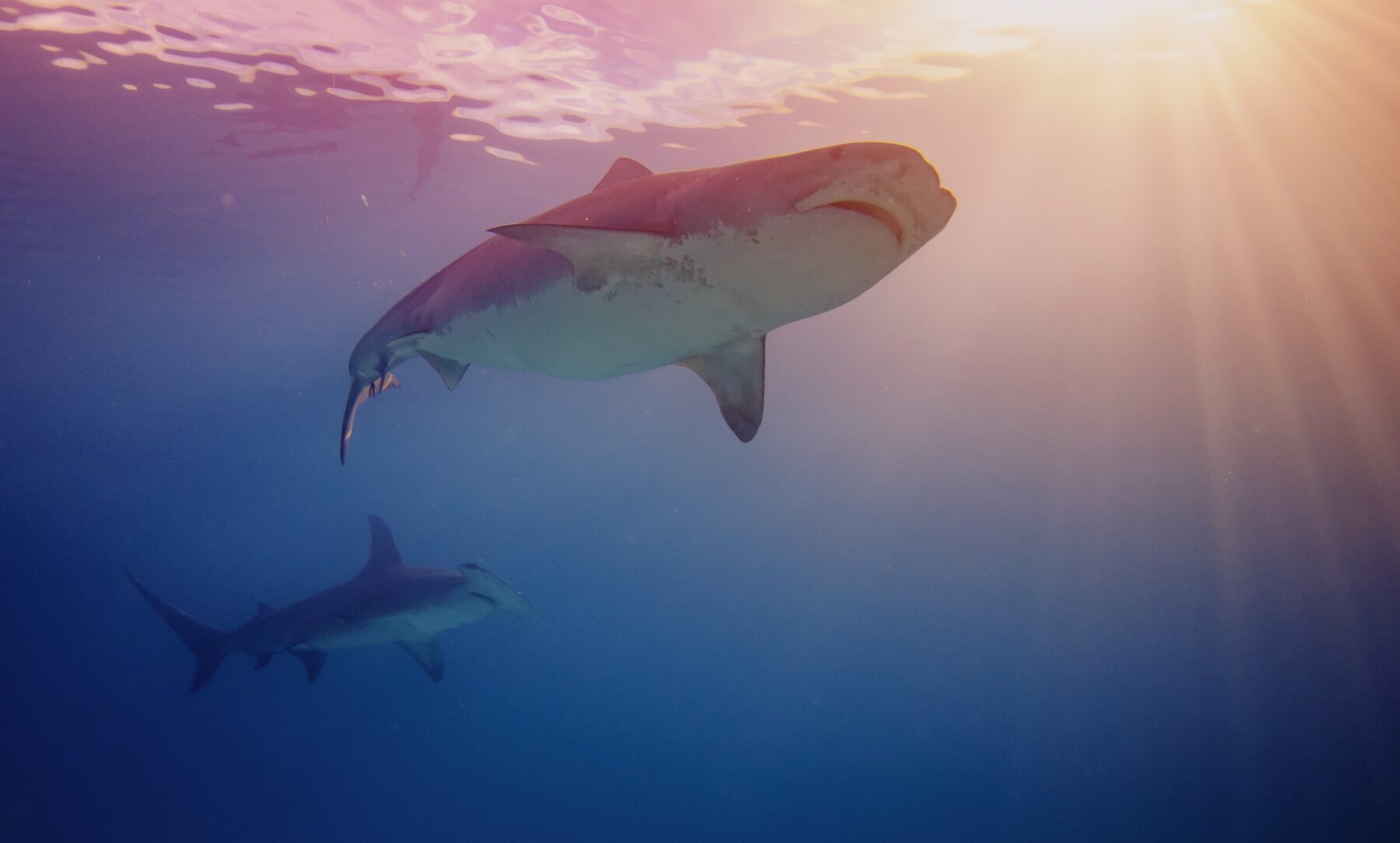Sharks historically have been given a bad rap by movies and media. But they are actually an integral part of the ocean’s ecosystem. As apex predators, sharks help maintain the ocean’s food chain to ensure species diversity.
Sharks are also an indicator of ocean health, according to Oceana, an ocean protection non-profit. The advocacy group reports that the loss of sharks has led to a significant decline in coral reefs, seagrass beds and other ocean habitats.
Now, U.S. policymakers are drawing attention to the substantial role sharks play in maintaining the balance of sea life. Last Thursday, the Senate approved the language of a bipartisan bill that would remove the country from participating in international shark fin trade, a big move in the global effort to protect nearly all shark species.
The bill, introduced last April, is now set to be signed into law by President Biden. The provision would make the sale or purchase of shark fins illegal in the U.S. with a few exceptions, including allowing the sale of fins from certain dogfish shark breeds.
“The shark fin legislation is going to be a strong signal from the United States that the shark fin trade is not sustainable and that the United States won’t be part of it,” said Gib Brogan, a campaign manager at Oceana.
The worldwide shark trade harvests between 26 million and 73 million sharks a year, according to an estimate published in science journal Ecology Letters. The process of shark finning — where fishers chop the fins from live sharks and dump the bodies overboard — kills an estimated 100 million or more sharks globally per year, according to non-profit Shark Stewards.
Sharks are one of the most threatened vertebrates: A third of sharks and rays are at risk of extinction because of overfishing. With fewer sharks in the ocean’s coral reef systems, large predatory fish, like groupers, increase in population and feed on herbivores. With fewer herbivores eating macroalgae that are harmful to the coral reefs, the reef system deteriorates.
The legislation comes after countries participating in the Convention on International Trade in Endangered Species of Wild Fauna and Flora (or CITES) voted Nov. 19 to expand the number of protected shark species. Now, 90% to 95% of those species will be covered, according to a CITES statement.
While shark fins are considered a delicacy in some Asian countries, they are particularly vulnerable to overfishing. Most shark species develop slowly and produce few pups per litter.
“This has been many years and many Congresses that we’ve been pushing for this,” Brogan added. Although it has been a long fight, more and more protections for shark species are being put into place each day.
At least a dozen states have already banned shark fin sales, according to the environmental group WildAid, and finning is already illegal in U.S. waters. The Shark Fin Sales Elimination Act also would also reauthorize programs supporting the conservation of coral reefs and the rehabilitation of marine mammals.
Through all these measures, U.S. lawmakers hope to put a dent into this worldwide industry and aid in restoring shark populations and the ocean’s coral reefs. “This will be a very good thing for the oceans, not just for sharks,” Brogan said.





 Copyright
2024
Root and Vine
Copyright
2024
Root and Vine